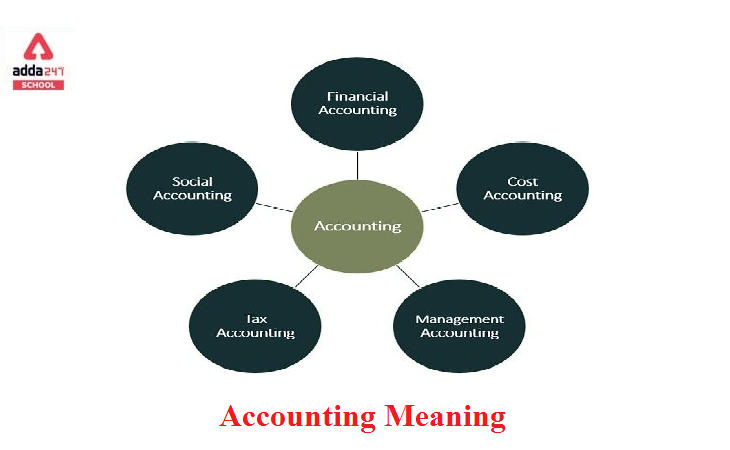Accounting Definition
What is the Accounting definition? Accounting Definition and Meaning answer is here. Accounting is the practice of keeping track of a company’s financial activities. Summarizing, analyzing, and reporting these transactions to oversight authorities, regulators, and tax collection entities are all part of the accounting process. Accounting financial statements are a succinct overview of financial activities across an accounting period, outlining a company’s operations, financial position, and cash flow.
Read about Fundamental Right
Accounting Definition in Hindi
एकाउंटिंग(लेखांकन) एक कंपनी की वित्तीय गतिविधियों पर नज़र रखने का अभ्यास है। इन लेन-देन का सारांश, विश्लेषण, और निरीक्षण अधिकारियों, नियामकों और कर संग्रह संस्थाओं को रिपोर्ट करना लेखांकन प्रक्रिया का हिस्सा है। एकाउंटिंग(लेखांकन) वित्तीय विवरण एक लेखा अवधि में वित्तीय गतिविधियों का एक संक्षिप्त अवलोकन है, जो कंपनी के संचालन, वित्तीय स्थिति और नकदी प्रवाह को रेखांकित करता है।
Accounting Meaning in Simple words
The term ‘account’ is the root of the word ‘accounting.’ It comes from the Old French word ‘acont,’ which means ‘account, reckoning, or terminal payment.’ The name comes from the Latin word ‘computus,’ which means ‘calculation.’
According to the Cambridge Dictionary, Accounting is “The system of recording and summarizing business and financial transactions and analyzing, verifying, and reporting the results.”
The synonyms of ‘Accounting’ are, considering, counting, esteeming, holding, looking, rating, and reckoning.
Accounting Meaning in simple words for Career or Degree
Most accountant and auditor jobs require at least a bachelor’s degree in accounting or a related discipline, and some firms prefer applicants with a master’s degree.
A degree in accounting may be necessary for membership in professional accounting bodies, or it may be utilised to meet such criteria.
A PhD is required to pursue a career in accounting academics, such as working as an accounting professor at a university. The most popular degrees are the Doctor of Philosophy (PhD) and the Doctor of Business Administration (DBA).
The PhD is the most popular degree for those who want to work in academia, whereas DBA programmes are designed to prepare business leaders for positions that need research abilities and qualifications in the private or public sector.
Accounting Meaning and Definition: Types
Accounting is a simple process of identifying and measuring quantitative financial activities, capital flows and communicates these financial reports to the decision-makers of the orginization.
Financial Accounting
The techniques utilised to compile interim and yearly financial statements are referred to as financial accounting. The balance sheet, income statement, and cash flow statement summarise the results of all financial activities that occur during an accounting period. An external CPA company audits most companies’ financial statements once a year.
Audits are required by law for some entities, such as publicly-traded firms.
However, as part of their loan covenants, lenders often need the results of an external audit every year.
As a result, most businesses will undergo annual audits for various reasons.
Managerial Accounting
Managerial accounting makes use of a lot of the same information as financial accounting, but it organises and uses it differently. In managerial accounting, for example, an accountant creates monthly or quarterly reports that a company’s management team can utilise to make operational choices.
Budgeting, forecasting, and numerous financial analysis methods are all covered under managerial accounting. This umbrella encompasses any information that may be valuable to management.
Cost Accounting
In the same manner that managerial accounting aids businesses in making management decisions, cost accounting aids them in making costing decisions. In its most basic form, cost accounting assesses all of the costs connected with producing a product. Analysts, managers, business owners, and accountants utilise this information to estimate how much their products should cost. In cost accounting, money is depicted as an economic element.
In cost accounting, money is considered as an economic factor in production, but in financial accounting, money is viewed as a measure of a company’s economic performance.
A monetary impact on an entity’s financial accounts is recorded as an entry in its accounting records.









 CUET UG Final Answer Key 2025 Revised, D...
CUET UG Final Answer Key 2025 Revised, D...
 DU Cut off 2025, Delhi University Expect...
DU Cut off 2025, Delhi University Expect...
 OUAT Result 2025 OUT @ouat.nic.in: Check...
OUAT Result 2025 OUT @ouat.nic.in: Check...









